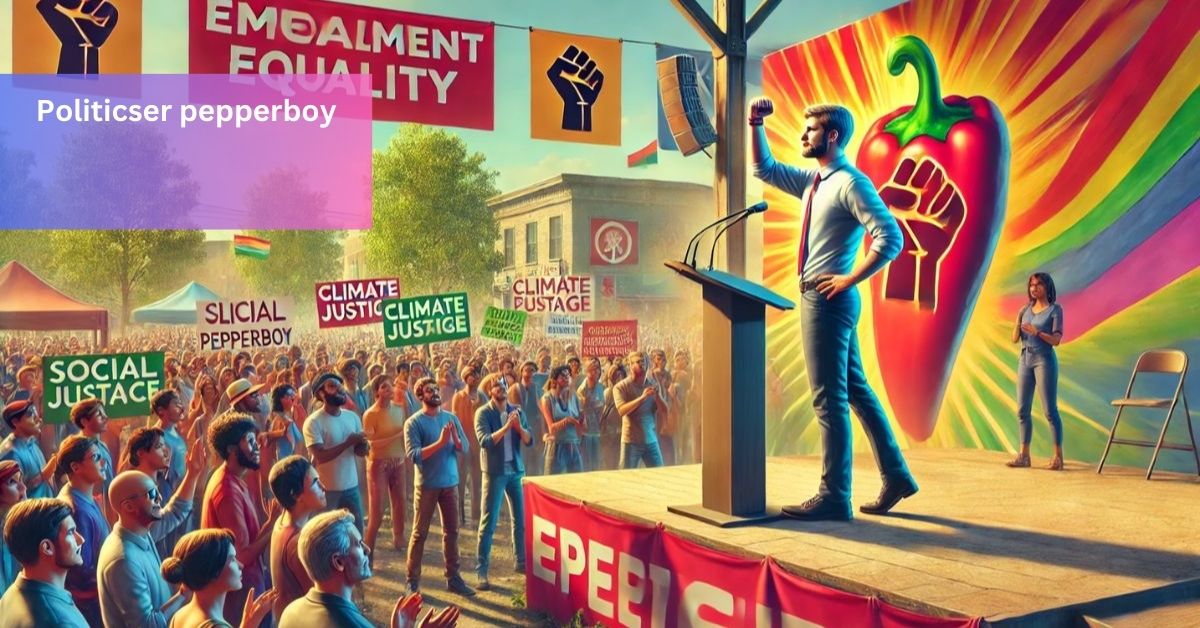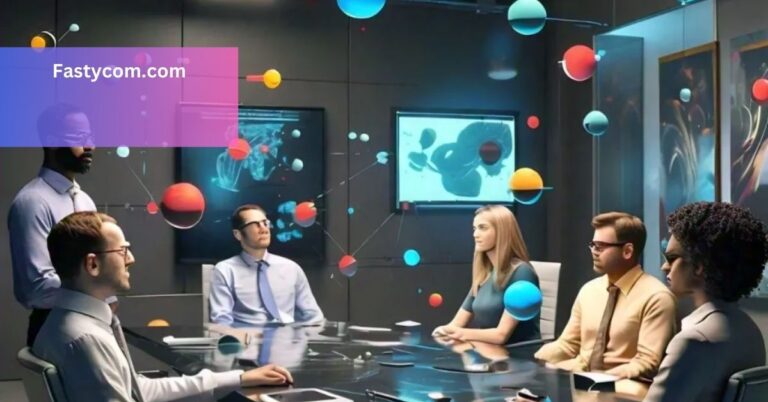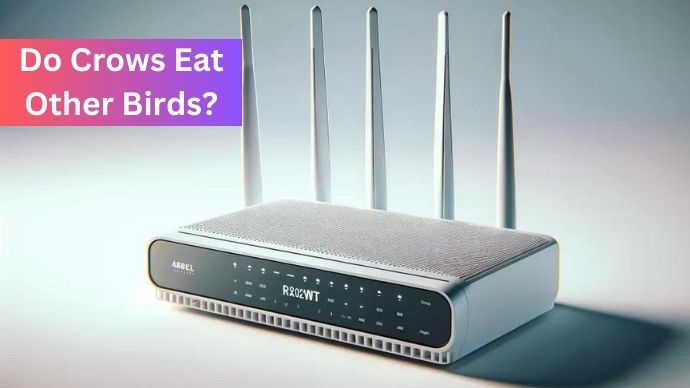Politicser pepperboy – Engage in Discussions!
In the ever-evolving world of online culture, new terms and expressions often emerge, capturing the essence of societal trends, political commentary, and the digital age’s influence on public opinion.
One such term that has garnered attention is “Politicser Pepperboy.” Although it may seem niche at first glance, its rise reflects the ongoing interplay between politics, social commentary, and internet culture, which continues to shape how people engage in political discussions today.
What is “Politicser Pepperboy”?
“Politicser Pepperboy” represents more than just a meme or casual reference. It symbolizes the complex relationship between politics and the way in which individuals, particularly younger generations, engage with political content online.
The term has become a way for people to refer to the blend of humorous, irreverent takes on serious political issues—often encapsulated in memes and viral trends—that have taken over platforms like Twitter, Reddit, and Instagram.
While its exact origins are unclear, “Politicser Pepperboy” is believed to have emerged during discussions surrounding political polarization and the growing role of social media in shaping political beliefs.
Over time, the term evolved to represent how political discourse can shift from formal debates to more casual, viral formats, making it both more accessible and, at times, more divisive.
The Evolution of Political Discourse in the Digital Age
In the past, political discussions typically took place in formal settings like debates, news broadcasts, and academic forums. However, with the rise of social media, political discourse has become much more decentralized.
Today, anyone with an internet connection can share their thoughts on politics, whether through a tweet, a meme, or a viral video.
Politicser Pepperboy” is a reflection of this shift. It represents the idea that serious political issues can be discussed in a lighthearted or humorous manner, often through satire or parody.
While this can make political content more approachable, it also has the potential to oversimplify complex issues or contribute to the spread of misinformation.
One of the major impacts of this new form of political discourse is its ability to engage younger audiences who may not otherwise participate in political conversations. Memes and viral content like “Politicser Pepperboy” serve as a bridge, bringing political topics into the daily conversations of people who are more likely to scroll through social media than watch a news broadcast.
The Role of Memes in Political Polarization
Memes have become an essential part of internet culture, and their influence on political discourse cannot be understated.
Through humor, satire, and simplified messaging, memes can distill complex political ideologies into digestible, shareable content. “Politicser Pepperboy” is a prime example of how memes are used to navigate the often-polarizing world of politics.
In an era where political divisions are growing, memes can serve both as a tool for building connections and a catalyst for further polarization. On the one hand, they can bring people together by providing a common language or reference point for discussing political issues.
On the other hand, they can also reinforce echo chambers, where individuals only engage with content that confirms their pre-existing beliefs.
“Politicser Pepperboy” is a term that speaks to this dual nature. It can be a unifying force, offering a lighthearted way for people to engage with politics, but it can also deepen divides, as political memes often paint complex issues in black-and-white terms, leaving little room for nuance.
The Impact of Social Media on Political Discourse
Social media has democratized political conversations, allowing more voices to participate in the debate. However, this increased accessibility comes with its own set of challenges.
The spread of misinformation, the rise of clickbait, and the tendency for social media platforms to prioritize engagement over accuracy have all contributed to a more fragmented and, at times, toxic political landscape.
“Politicser Pepperboy” represents a microcosm of these larger trends. The term encapsulates how political discourse on social media can be both empowering and problematic.
While it allows for a greater diversity of perspectives, it also creates an environment where misinformation can thrive, and political conversations are often reduced to sound bites or memes.
Despite these challenges, the rise of “Politicser Pepperboy” demonstrates the power of social media in shaping political opinions. Whether people are using the term to engage in serious discussions or simply sharing memes for fun, it’s clear that the internet has become a central battleground for political discourse.
Why “Politicser Pepperboy” Resonates with Younger Generations
One reason why terms like “Politicser Pepperboy” resonate with younger audiences is that they reflect the shifting nature of political engagement.
For many millennials and Gen Z individuals, traditional forms of political discourse—such as watching debates or reading long-form political analysis—feel outdated or inaccessible.
Instead, these generations are more likely to engage with political content through social media, where they can express their opinions through likes, shares, and comments. Memes like “Politicser Pepperboy” allow them to participate in political conversations in a way that feels relevant to their experiences and digital habits.
In this sense, “Politicser Pepperboy” is not just a meme—it’s a form of political expression that aligns with the values and communication styles of younger generations. It’s quick, it’s shareable, and it allows individuals to engage with politics on their own terms.
Potential Downsides of the “Politicser Pepperboy” Phenomenon
While the rise of terms like “Politicser Pepperboy” has made political conversations more accessible, it’s important to recognize the potential downsides of this trend. One major concern is that the oversimplification of complex political issues can lead to a lack of depth in political discussions.
Memes and viral content often focus on the most sensational or controversial aspects of an issue, leaving little room for nuanced debate or thoughtful analysis. This can contribute to a more polarized political landscape, where people are less likely to engage with opposing viewpoints or consider alternative perspectives.
Additionally, the reliance on humor and satire in political memes can sometimes undermine the seriousness of certain issues. While it’s important to engage with politics in a way that feels approachable, it’s also crucial to recognize when humor crosses the line into trivialization.
conclusion:
“Politicser Pepperboy” exemplifies the evolving nature of political discourse in the digital age, blending humor and serious commentary. While it engages younger audiences and makes politics more accessible, it also poses challenges like oversimplification and polarization.
FAQs:
What does “Politicser Pepperboy” mean?
Politicser Pepperboy” is a term that refers to the intersection of political discourse and meme culture, often used to describe humorous or satirical takes on serious political issues.
Where did the term “Politicser Pepperboy” come from?
The origins of the term are somewhat unclear, but it is believed to have emerged from online discussions about political polarization and the role of social media in shaping public opinion.
Why is “Politicser Pepperboy” popular on social media?
The term resonates with younger generations because it reflects the way they engage with politics—through memes, humor, and viral content rather than traditional forms of discourse.
Is “Politicser Pepperboy” just a meme?
While the term is often associated with meme culture, it represents a broader trend of using humor and satire to navigate political discussions in the digital age.
How does “Politicser Pepperboy” contribute to political polarization?
Like many political memes, “Politicser Pepperboy” can reinforce echo chambers by oversimplifying complex issues and contributing to divisive conversations.
Can “Politicser Pepperboy” be used to engage in serious political discussions?
Yes, while the term often involves humor, it can also be a way to make political conversations more accessible and engage people who may not otherwise participate in traditional political discourse.
Is there a downside to using memes like “Politicser Pepperboy” in political discussions?
The oversimplification of political issues through memes can sometimes lead to a lack of depth in political discussions and contribute to misinformation.
How does “Politicser Pepperboy” reflect the changing nature of political discourse?
The term highlights how social media has transformed political conversations, making them more decentralized, accessible, and, at times, more polarized.
Why do younger generations prefer engaging with politics through memes like “Politicser Pepperboy”?
Memes are quick, shareable, and allow younger individuals to participate in political conversations in a way that feels relevant to their digital experiences.
What is the future of political discourse in the digital age?
As social media continues to evolve, political discourse will likely become more intertwined with meme culture, with new terms like “Politicser Pepperboy” emerging to reflect the changing nature of online political conversations.





